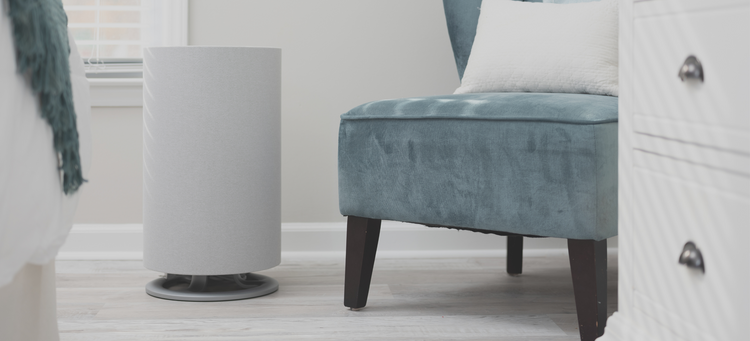A HEPA Vacuum Is NOT An Air Purifier Substitute

When looking to expand our line of air purifiers a few years ago, one of the items we considered was a HEPA Vacuum Cleaner. As a company always searching for ways to help you breathe clean, healthy air, we thought adding a line of high-performance HEPA vacuums that help remove dust and other household allergens would be a no brainer. Then, we did some testing and decided otherwise. As we found out, HEPA vacuums don’t work quite like they suggest.
HEPA Vacuum Cleaners
Although many vacuum cleaners feature HEPA filters, in our testing we found that although many manufacturers claim their HEPA vacuums “capture the majority of dust particles,” they actually can’t account for smaller airborne particulates and only capture the bigger ones.
In fact, the HEPA vacuums we tested actually emitted large amounts of tiny particles into the air. While the term HEPA is used, these units do not appear to include a HEPA filter. If there is indeed real HEPA filtration, the seals are poor and allow particles to be emitted into the air. HEPA filtration should remove 100% of airborne particles, a feat further described further in our Air Purifier Test Results and in the Particle Counter test video below for our residential Max HEPA Air Purifier.
The main issue with filters on a HEPA vacuum cleaner is that they have very little surface area. They are too small. As a result a HEPA vacuum cleaner is not effective in removing the smallest, most dangerous particles. If they were to function as an air purifier, the HEPA vacuum would need a much larger filter and this would make the vacuum cleaner very cumbersome and difficult to use.
Bottom line, an air purifier and HEPA vacuum cleaner have very different roles. Larger sized particles settle to the floor quickly and a vacuum is designed to remove them. While these larger particles are being removed, the vacuum is most likely also kicking up the smallest sized particles that are most easily breathed deep into your lungs. Removing those pesky, small particulates is the job of an air purifier.
A HEPA vacuum and HEPA air purifier really work together to clean your home, but each has it’s own function. If you are looking to remove allergens, small dust particles, mold, smoke, odors and other airborne allergens, a HEPA air purifier is your best bet. If your floors are dirty, then obviously a vacuum cleaner is the way to go. Anyone looking to clean both your air and floors, separate units are a must.
To find HEPA filtration and remove the small, harmful airborne particulates from your home, browse our full selection of high-performance residential air purifiers.
Other articles related to HEPA:
10 Reasons everyone needs an air purifier
The link between allergies and asthma
Relieve Ragweed and Pollen Allergies
California School District Looks To Protect Students With HEPA Air Purifiers







